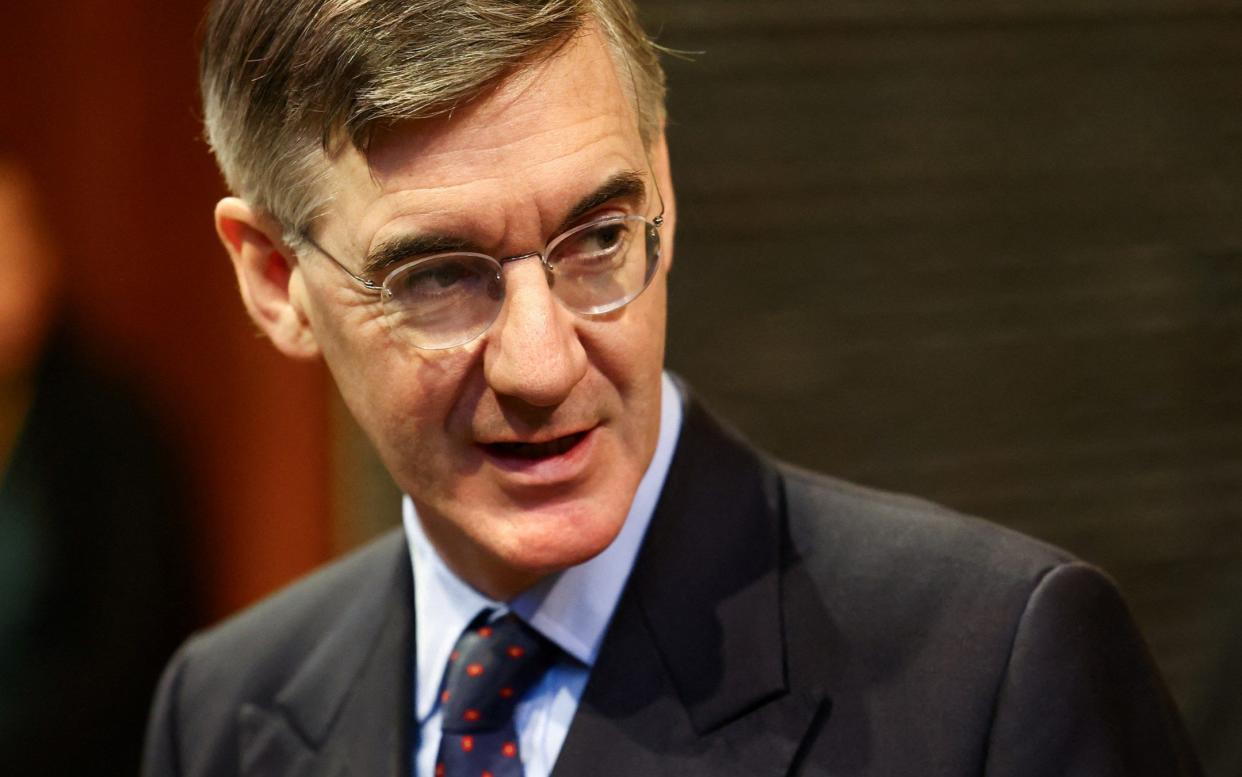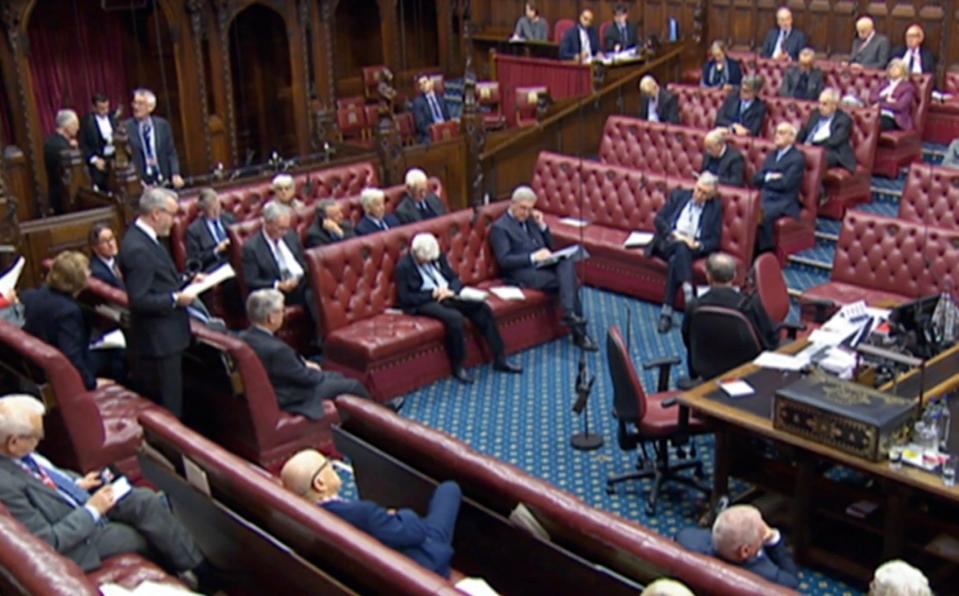House of Lords ‘on thin ice’ over vote to delay Rwanda bill, suggests Jacob-Rees Mogg

- Oops!Something went wrong.Please try again later.
The House of Lords is “on thin ice” over its vote to delay the Government’s Rwanda plan, Sir Jacob Rees-Mogg has suggested.
The former business secretary said that the peers were at risk of undermining their constitutional role by “opposing” the underlying politics of the Rwanda scheme rather than scrutinising and seeking to improve legislation.
“So the real question is, is the House of Lords on thin ice? There was a big attempt to reform it under the coalition. There’s a feeling that appointed peers don’t have legitimacy,” he told GB News.
“And it’s gotten much more deeply involved in the weeds of politics, particularly Conservative politics in recent years.
“Is this something that a democracy can cope with or are the benefits of a House of Lords still sufficient to outweigh this obstacle?”
His comments follow the House of Lords voting by 214 votes to 171 for a delay in the ratification of a new, legally binding treaty signed with Rwanda last month.

The peers backed a report by their international treaties committee which set out a 10-point plan including legal safeguards and new infrastructure that Rwanda needed to be implemented to improve its asylum system before the treaty could be ratified.
The Rwanda Bill, which declares the country safe for asylum seekers and is underpinned by the treaty, is due to return to the Lords next Monday for its second reading when it is expected to face severe criticism from senior peers.
Sir Jacob said it was the first time the Lords had opposed ratification of a treaty and was intended to add a further delay to a plan that was meant to begin over 18 months ago.
“This [vote] shows the mood of the upper house. In essence, it is rather unsurprisingly, an attempt to frustrate and delay the government’s migration policy,” he said.
‘Its role is to scrutinise detail’
Sir Jacob cited remarks by Lord Carlile, a former independent reviewer of terror legislation, about protecting democracy from itself as “very surprising”.
“That is not the constitutional role of the House of Lords. Its role is to scrutinise detail and process and try to ensure that legislation is competent,” he said
“Opposing the underlying politics of legislation is not really what it’s there for. It’s more there to delve into the fine print. And under the Salisbury-Addison convention the House of Lords is not meant to block legislation, at least at second reading, that is in an elected party’s manifesto. And reducing immigration was in the 2019 manifesto.”
Downing Street said the House of Lords vote to delay the Rwanda treaty would not prevent the Government getting deportation flights off in the spring.
The Prime Minister’s official spokesman said on Tuesday that the vote to delay ratification of the treaty until extra safeguards have been put in place would not “impact our timelines for the progress of the Bill or getting the flights off the ground.”

